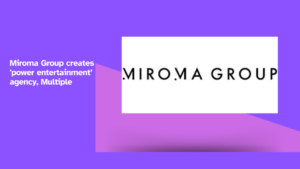By Zoë Baptie, Account Director, Bluestripe Communications
When you think about job changes, you may not instantly think that someone who works in PR would be welcomed with open arms by MI5 to become their next secret agent. Yet, MI5 would love to hire me.
In fact, they want me and the 6.3 million people in the UK just like me, because our brains work differently. Dyslexia, like other forms of neurodiversity, are often invisible to the eye. So for me and others like me, it can pose the dilemma of when to reveal this to a new employer.
If we take it back to MI5 for a moment – which has publicly stated it wants to hire employees with dyslexia – wouldn’t it be amazing to have no fear of being upfront about an invisible disability? To not only worry that it will be held in prejudice against you but that perhaps it may even work in your favour – because you are exactly what they are looking for?
Sadly, I’ve found this isn’t always the case. But why wouldn’t an employer want to hire someone with a form of neurodiversity such as dyslexia?
Dyslexics, for example, are often highly creative and they love simplicity. Not only this, but they can make sense of the bigger picture, have high levels of empathy, are passionate, curious, and have high levels of emotional intelligence. Which makes them perfect leaders and problem solvers with impeccable organisation skills that any organisation would be mad to miss out on.
It’s not a disability, it’s a superpower
Many dyslexics often go undiagnosed. I was fortunate as I was diagnosed at an early age. However, this hasn’t meant things have been easy. In my first full-time job I told my boss I was dyslexic – and maybe I was naive – as I thought he’d be understanding. Yet the response was far from this and instead I was told not to let clients find out as it would cost him money. As a result, I kept it a secret from my employers ever since.
My job is built around communication. But if anything, having trouble with the way I approach words has only pushed me to work harder, be better, and prove that yes, I’m not like everyone else – I’m better. Like many, I’ve formed workarounds to my approach. Even writer and the creator of children’s book Captain Underpants, Dav Pikey has commented about how dyslexia helped him, stating; “Dyslexia helped me to write stories that were not boring. It helped me to choose my words very, very carefully.”
Thankfully, when I eventually told my current employer I was dyslexic the response I received was completely different to what I had experienced before. Perhaps I had to learn the hard way, but being upfront has given me the freedom to be open with the rest of my team and to deliver the highest quality of work. I also hope it helps the people I work with feel they can open up if they have a hidden disability. This way we can have an open and honest conversation about how, as a company, we can support that individual. Plus it is a massive relief not to feel like I have to “hide it”.
Making the recruitment process fair
It’s also helped me look at how the business I work for is being more inclusive when it comes to recruitment.
Firstly, all businesses should be looking for diversity – it’s in their best interest to be inclusive. And as dyslexia is classed as a disability, it’s important to point out it falls under the Equality Act which is law.
Providing quiet working areas free from distractions, providing both printed and electronic materials, and allowing extra time during written assessments are easy changes to make. Plus asking “do you need any adjustments” prior to the interview taking place, should be standard in ALL qualifying interviews.
And what’s my advice to people like me who may be worried about being open with other people about their superpower?
Fuck em.
Be open, be you. If they don’t want you then remember, MI5 do.
Become the next 007 and whilst us dyslexics might be shaken we certainly aren’t stirred.
*Bluestripe Communications is owned by Bluestripe Group, the owner of NDA.










